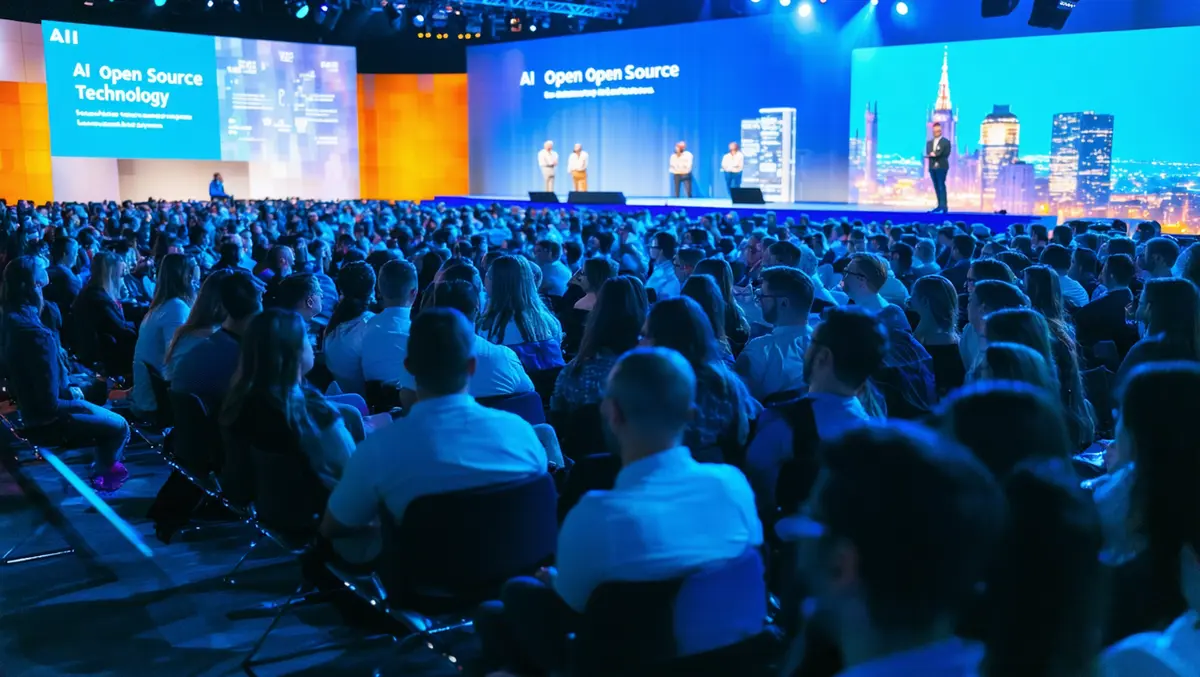
State of Open Con 2025 reveals keynote speaker lineup
OpenUK has revealed the lineup of speakers for the upcoming State of Open Con 2025, an open source conference set to take place on 4th and 5th February 2025 at Convene Sancroft St. Pauls in London.
The conference will feature plenary sessions with speakers from various sectors, including representatives from the UK Government's technology and AI leadership teams, as well as prominent figures from the open source and AI industries. The event will address AI and open source's future, with a focus on UK Government support through their AI Opportunities Action Plan.
Emily Middleton, Director General for Digital Centre Design at the Department for Science, Innovation and Technology, along with Lord Nat Wei, a member of the Science and Technology Select Committee in the House of Lords, and Tomas Lamauskas, Deputy Secretary-General of the International Telecommunication Union, are slated as speakers. Their session will explore "The Future of Open Source."
In the "AI Openness" segment, Dr Laura Gilbert, Head of the AI for Government Program at the Ellison Institute of Technology in Oxford, will present her insights. She will be joined by Lord Clement-Jones, Liberal Democrat Spokesperson on Science, Innovation and Technology, and Chi Onwurah MP, Chair of the House of Commons Science, Innovation and Technology Select Committee.
The event will also feature a dedicated day focusing on AI Openness, designed to showcase the latest advancements in AI technology. The DSIT AI team is set to conduct policy consultations with various organisations to discuss AI strategies in preparation for the AI Action Summit in Paris later in the month.
Amanda Brock, CEO at OpenUK, commented on the significance of the event, "This event brings together leaders across our public sector, AI, open source software, open hardware and open data, at a time when the future for AI is being decided. Without a full understanding of how technology is built and value generated for individuals, communities and companies, it will be impossible for governments to support the innovators and businesses developing these products and services. At the same time, the global AI sector is being defined by geo-political and technology change - it's not an exaggeration to say that the events taking place in the next month will affect the future of AI for years to come. The conversations here in London will shape the market of the future and set the scene for the discussion around AI openness at the Paris AI Action Summit only a few days later, when I and other representatives of the open source community will join a Summit for the first time."
Additional key speakers include Aarushi Kansal, AI Engineer at AutoGPT, Anandhi Bumstead, Director of Engineering at AWS's OpenSearch, Anastasia Stasenko, Co-Founder and CEO of Pleias, and Chris Aniszscyk, Chief Technology Officer at the Cloud Native Computing Foundation, among others.
The conference will not only feature plenary sessions and keynotes but also seven diverse content tracks covering open source software and security, open hardware, open data, open finance, mobile and communications, the future of open source, and AI openness.
Linda Griffin, Vice President Global Policy at Mozilla, expressed the importance of open ecosystems in digital growth, saying, "Open ecosystems, and the shared research, talent and community they promote, are proven to be the most successful means of impacting digital economic growth - but they do not happen by accident. Governments can play a key role in architecting this support and associated growth with deliberate pro open-source innovation strategies. This is a critical time for both openness and AI - It is clear we cannot treat open ecosystems as some sort of backstop safety blanket that will always be there."
The State of Open Con is supported by leading technology companies, including ARM and Cisco, as well as ControlPlane, GitHub, Microsoft, Percona, and Tessl. It also receives backing from Canonical, Mozilla, and the Yocto Project, part of the Linux Foundation.


